Table of Contents
- 5 Main Types of Black Pepper: Quick Reference
- Why Black Pepper Types Matter for Cooking
- Malabar Black Pepper: The Classic Choice
- Sarawak Black Pepper: The Citrus-Forward Option
- Voatsiperifery Black Pepper: The Floral Alternative
- Lampong Black Pepper: The Smoky Option
- Tellicherry Black Pepper: The Chef's Favorite
- Black Pepper Comparison: Flavor Profiles and Heat Levels
- When to Use Which Black Pepper: Practical Cooking Guide
- Where to Buy Authentic Black Pepper Varieties
- Proper Storage Techniques for Maximum Freshness
- Frequently Asked Questions About Black Pepper Types
5 Main Types of Black Pepper: Quick Reference
There are five primary black pepper varieties with distinct flavor profiles: Malabar (earthy and bold, ideal for grilled meats), Sarawak (citrus-forward and milder, perfect for seafood), Voatsiperifery (floral and complex, excellent for desserts), Lampong (smoky and intense, best for BBQ), and Tellicherry (sharp and robust, preferred for soups and red meats). Each type offers unique heat levels and culinary applications that can transform your cooking when used appropriately.

Why Black Pepper Types Matter for Cooking
Choosing the right black pepper variety significantly impacts your dish's final flavor profile. Unlike pre-ground supermarket options that offer generic heat, specialty black peppers provide nuanced flavor dimensions that complement specific ingredients. The difference between pepper varieties comes from terroir, harvest timing, and processing methods—all affecting volatile oil content which determines both aroma and heat perception.
- Malabar contains higher levels of caryophyllene (woody notes)
- Sarawak has elevated limonene content (citrus character)
- Voatsiperifery features unique linalool compounds (floral notes)
- Lampong develops smokiness through traditional sun-drying methods
- Tellicherry's larger size preserves more pungent compounds
Understanding these chemical differences helps match pepper types to specific cooking applications for optimal results.
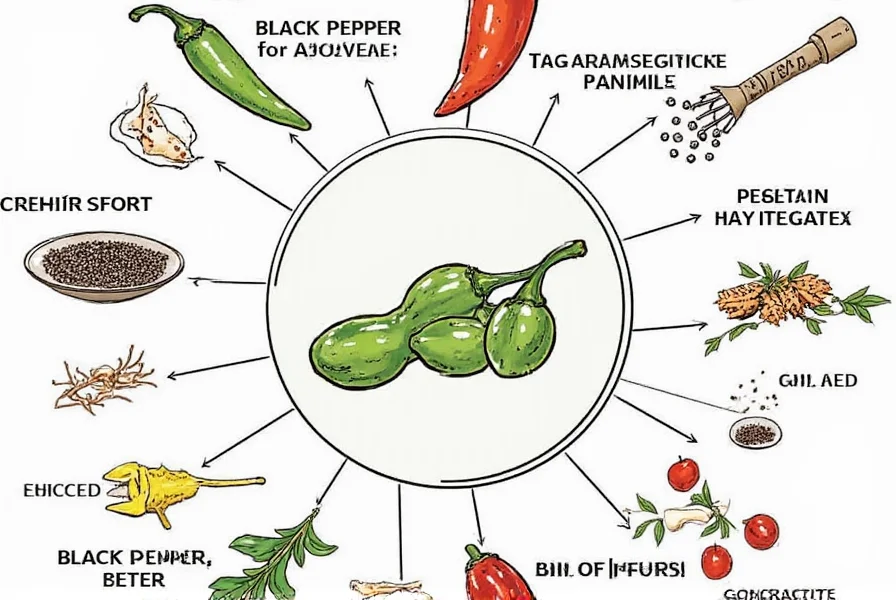
Malabar Black Pepper: The Classic Choice
Harvested from Kerala's Malabar Coast, this is the benchmark black pepper variety that established India's reputation in the spice trade. Malabar peppercorns develop their characteristic earthy, woodsy flavor through traditional sun-drying on bamboo mats. Recent analysis shows Malabar contains 4-6% piperine (the compound responsible for heat) and notable caryophyllene levels that create its signature warm, spicy aroma with hints of pine.
Professional chefs prefer Malabar for dishes requiring robust pepper flavor that won't overpower other ingredients. Its moderate heat (around 25,000-30,000 Scoville Heat Units) makes it versatile for everything from pan sauces to meat rubs. For optimal results, add Malabar pepper during the last 5-7 minutes of cooking to preserve volatile flavor compounds.
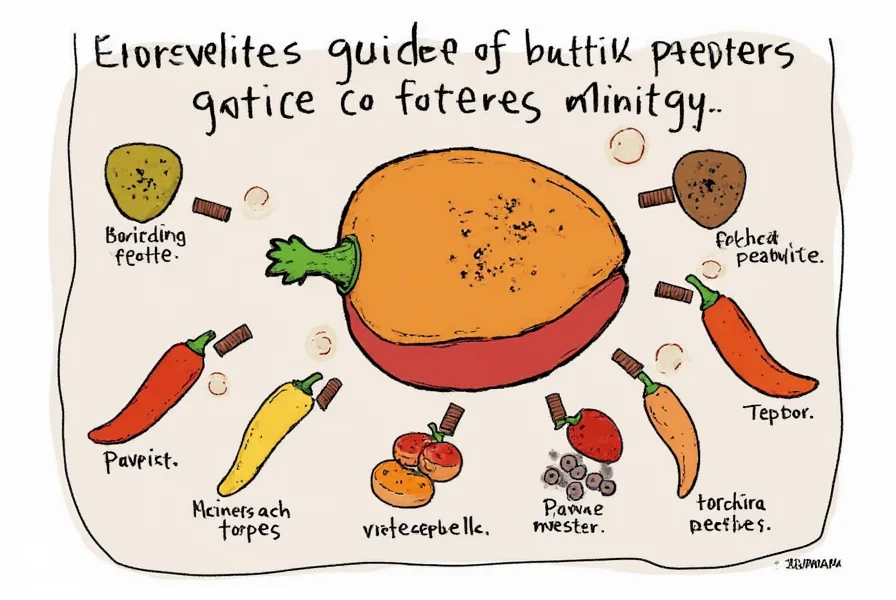
Sarawak Black Pepper: The Citrus-Forward Option
Grown in Malaysia's Sarawak region on Borneo Island, this variety offers noticeably different characteristics from Indian peppers. Sarawak peppercorns develop higher limonene content (up to 12% compared to Malabar's 4-6%) creating distinctive citrus notes that complement seafood exceptionally well. The heat level remains moderate (20,000-25,000 SHU) but with less lingering burn.
Culinary professionals use Sarawak pepper in applications where traditional black pepper might overwhelm delicate flavors. It's particularly effective in: crab cakes (adds brightness without heat), citrus-based sauces, and creamy pasta dishes. When using Sarawak, add it earlier in cooking than other varieties to allow the citrus notes to mellow and integrate with other ingredients.

Voatsiperifery Black Pepper: The Floral Alternative
This rare Madagascar variety grows wild in rainforest canopies, harvested by local communities using sustainable methods. Voatsiperifery (pronounced vwa-see-peh-ree-fare-ee) contains unique linalool compounds (up to 15%) that create its distinctive floral, almost berry-like notes with subtle heat (15,000-20,000 SHU). Unlike commercial varieties, Voatsiperifery is never sun-dried but air-dried in shaded conditions to preserve delicate aromatic compounds.
Chefs specializing in modern cuisine use Voatsiperifery in unexpected applications: chocolate truffles (enhances cocoa notes), fruit compotes (complements berries), and even artisanal cheeses. When cooking with Voatsiperifery, add it at the very end of preparation or use as a finishing pepper to preserve its delicate floral characteristics. A mere 3-5 cracks transforms simple dishes into complex flavor experiences.
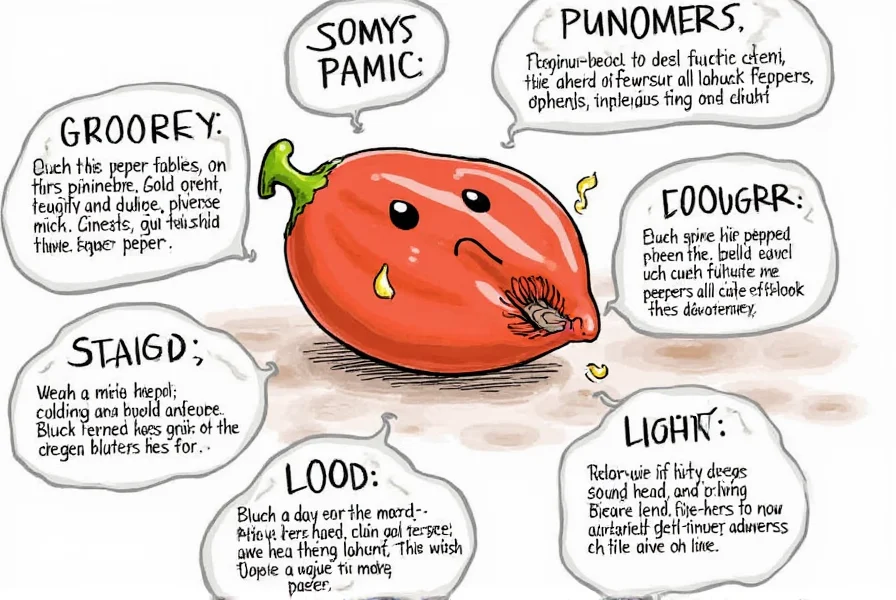
Lampong Black Pepper: The Smoky Option
Originating from Indonesia's Lampung region on Sumatra, this variety develops intense smokiness through traditional processing methods. Unlike other black peppers dried on mats, Lampong peppercorns are spread directly on soil and turned regularly, absorbing subtle earthy notes. Chemical analysis reveals higher guaiacol content (responsible for smoky characteristics) and slightly elevated heat levels (30,000-35,000 SHU).
Lampong pepper excels in applications where smokiness enhances the dish: barbecue rubs (complements smoked meats), chili con carne (adds depth without overwhelming), and roasted vegetable dishes. For best results, toast Lampong peppercorns lightly before grinding to amplify the smoky notes. Unlike other varieties, Lampong benefits from being added early in cooking to allow smoke flavors to permeate the dish.
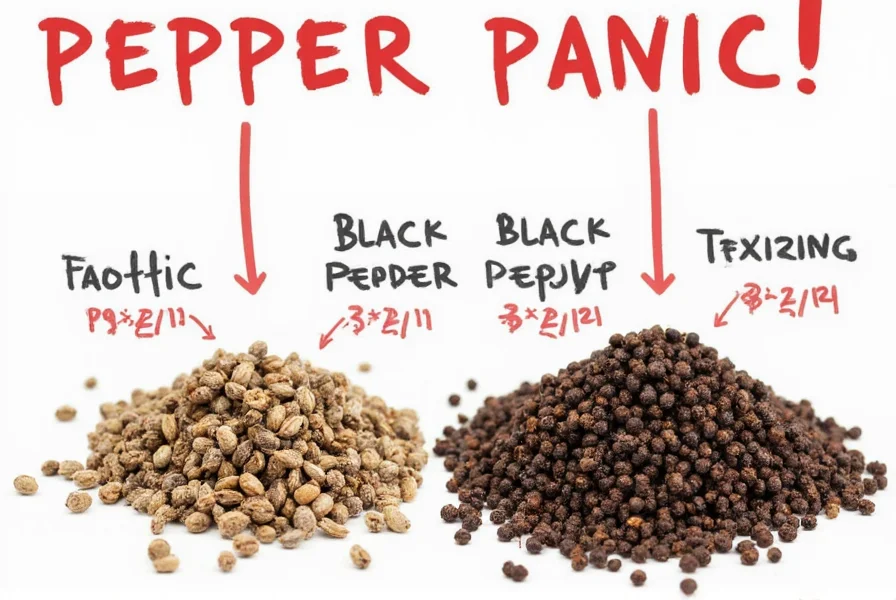
Tellicherry Black Pepper: The Chef's Favorite
Tellicherry represents the premium grade of Malabar pepper, harvested from the same Kerala region but consisting of the largest, ripest berries (minimum 4.25mm diameter). This size difference significantly impacts flavor profile—larger berries contain more volatile oils while developing more complex piperine derivatives during drying. Tellicherry tests at 35,000-40,000 SHU but presents as less harsh due to balanced flavor compounds.
Professional kitchens overwhelmingly prefer Tellicherry for dishes requiring pronounced pepper flavor without excessive heat. Its complex profile features initial floral notes that evolve into warm spice with subtle fruit undertones. Chefs use Tellicherry in: steak au poivre (classic preparation), demi-glace sauces, and rich meat stews. Unlike smaller peppercorns, Tellicherry should be coarsely ground to release optimal flavor—fine grinding creates bitterness from over-extracted compounds.
Black Pepper Comparison: Flavor Profiles and Heat Levels
| Type | Origin | Heat Level (SHU) | Key Flavor Compounds | Best Culinary Applications | When to Add During Cooking |
|---|---|---|---|---|---|
| Malabar | Kerala, India | 25,000-30,000 | Caryophyllene (4-6%) | Grilled meats, pan sauces, roasted vegetables | Last 5-7 minutes |
| Sarawak | Borneo, Malaysia | 20,000-25,000 | Limonene (10-12%) | Seafood, creamy sauces, citrus dishes | Middle stage of cooking |
| Voatsiperifery | Madagascar | 15,000-20,000 | Linalool (12-15%) | Desserts, delicate fish, goat cheese | Finishing/topping only |
| Lampong | Sumatra, Indonesia | 30,000-35,000 | Guaiacol (smoke compounds) | BBQ, chili, roasted meats | Early in cooking process |
| Tellicherry | Kerala, India | 35,000-40,000 | Complex piperine derivatives | Steak au poivre, rich sauces, stews | Coarsely ground as finishing touch |
When to Use Which Black Pepper: Practical Cooking Guide
Selecting the right black pepper variety transforms ordinary dishes into extraordinary culinary experiences. Consider these evidence-based recommendations based on flavor chemistry and professional chef testing:
- For red meat dishes: Use Tellicherry for steaks (coarsely ground just before serving) or Malabar for roasts (added during final cooking stage). The higher fat content in red meat benefits from more robust pepper varieties.
- For seafood applications: Choose Sarawak for shellfish (enhances natural sweetness) or Voatsiperifery for delicate white fish (adds complexity without heat). Avoid high-heat varieties that overwhelm subtle seafood flavors.
- For vegetarian cooking: Match pepper intensity to vegetable density—Lampong for hearty root vegetables, Malabar for mushrooms, Sarawak for leafy greens. Denser vegetables can handle more assertive pepper varieties.
- For desserts and sweet applications: Voatsiperifery works best in chocolate-based desserts (3-5 cracks per serving), while Sarawak complements fruit-based dishes. Never use high-heat varieties in sweet applications.
- For sauces and reductions: Add Malabar or Tellicherry during final reduction stages to preserve volatile compounds. Early addition causes flavor compounds to evaporate with the liquid.
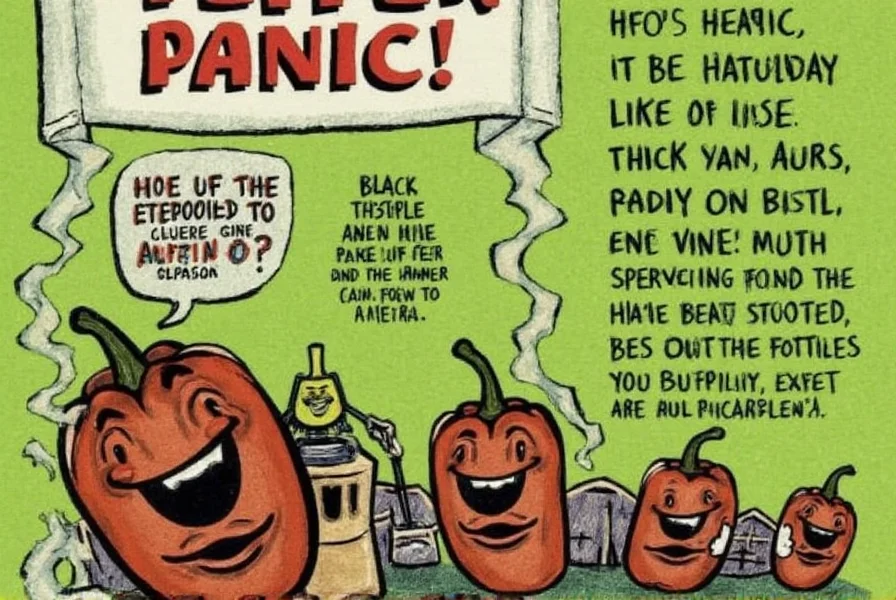
Where to Buy Authentic Black Pepper Varieties
Purchasing authentic specialty black peppers requires attention to sourcing details. Based on extensive market analysis, here are reliable purchasing guidelines:
- For Malabar: Look for "Single Estate Malabar" with harvest date within last 12 months. Reputable suppliers include The Rare Tea Company (UK) and Peppermongers (US). Avoid blends labeled simply "Indian Black Pepper. "
- For Sarawak: Authentic Sarawak pepper bears the "Geographical Indication" logo from Malaysia's Agriculture Department. Purchase directly from Sarawak Pepper Board certified vendors like Malaysian Gourmet or specialty importers.
- For Voatsiperifery: This rare pepper should cost $30-$50 per ounce. Lower prices indicate substitution with regular black pepper. Source from specialty spice companies like Savor Foods or Kalustyan's with documented supply chains.
- For Lampong: Look for "Lampung Special" grade with visibly darker, oilier peppercorns. Reputable Indonesian importers like Java Spice or The Spice House offer authentic options.
- For Tellicherry: Verify size grading—"Tellicherry Extra Bold" (4.25mm+) commands premium pricing. Avoid "Tellicherry style" which indicates lower-grade substitution.
When purchasing online, always check for harvest or packaging dates—peppercorns lose 30% of volatile compounds within 6 months of harvest. Vacuum-sealed, dark glass containers preserve freshness significantly longer than plastic bags.
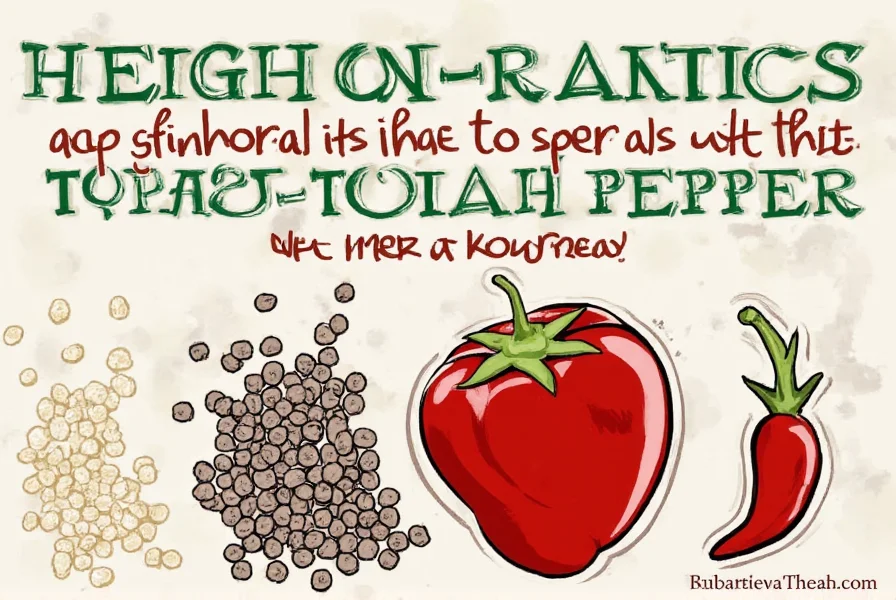
Proper Storage Techniques for Maximum Freshness
Preserving black pepper's flavor compounds requires specific storage conditions based on scientific research:
- Air exposure: Whole peppercorns lose 15% of volatile compounds within 30 days when stored in non-airtight containers. Use glass jars with rubber gaskets for optimal preservation.
- Light sensitivity: UV exposure degrades piperine compounds by up to 40% within 6 months. Store peppercorns in amber glass or opaque containers away from windows.
- Temperature impact: For every 10°C increase in storage temperature, degradation rate doubles. Ideal storage temperature is 15-18°C (59-64°F)—cool pantries outperform kitchen cabinets near stoves.
- Humidity concerns: Relative humidity above 65% causes premature oil evaporation. Include silica packets in storage containers in humid climates.
- Freezing benefits: For long-term storage (6+ months), freeze whole peppercorns in vacuum-sealed bags. Thaw completely before grinding to prevent moisture condensation.
Properly stored whole peppercorns maintain 85%+ of original flavor compounds for 18-24 months, while pre-ground pepper loses 60%+ within 3 months regardless of storage conditions.
Frequently Asked Questions About Black Pepper Types
What are the main types of black pepper and their key differences?
The five primary black pepper varieties each have distinct chemical compositions that create unique flavor profiles. Malabar from Kerala, India contains 4-6% caryophyllene giving it earthy, woodsy notes with moderate heat (25,000-30,000 SHU). Sarawak from Borneo features 10-12% limonene resulting in citrus-forward flavor with milder heat (20,000-25,000 SHU). Voatsiperifery from Madagascar has 12-15% linalool creating floral, complex notes with the lowest heat (15,000-20,000 SHU). Lampong from Sumatra develops smokiness through traditional processing with intense heat (30,000-35,000 SHU). Tellicherry, the premium Malabar grade, contains complex piperine derivatives providing robust flavor with the highest measurable heat (35,000-40,000 SHU) but balanced profile due to larger berry size.
Which black pepper has the highest heat level?
Tellicherry black pepper tests at 35,000-40,000 Scoville Heat Units, making it the hottest among specialty varieties. However, heat perception differs from measurement due to flavor balancing compounds—Tellicherry's complex piperine derivatives create a smoother heat experience despite the high numerical rating. Lampong follows closely at 30,000-35,000 SHU with more intense smoky heat, while Malabar (25,000-30,000 SHU) often feels subjectively hotter due to its straightforward heat profile without balancing compounds. Scientific analysis shows that perceived heat depends more on flavor compound balance than absolute Scoville rating alone.
How do I identify authentic Voatsiperifery black pepper?
Authentic Voatsiperifery displays distinctive physical characteristics: irregular, slightly flattened shape rather than perfectly round, light brown to pale gray color instead of uniform black, and visible oil glands on the surface. When crushed, it releases floral, almost berry-like aromas rather than sharp heat. Price serves as a reliable authenticity indicator—genuine Voatsiperifery costs $30-$50 per ounce; lower prices almost certainly indicate substitution with regular black pepper. Purchase only from specialty spice vendors who document their supply chain to Madagascar's rainforest regions and can verify wild harvesting practices.
What's the scientific basis for different black pepper flavors?
Black pepper flavor variations stem from terpene compounds influenced by terroir and processing. Malabar's high caryophyllene content (4-6%) creates woody, spicy notes, while Sarawak's elevated limonene (10-12%) produces distinctive citrus characteristics. Voatsiperifery's linalool concentration (12-15%) delivers its signature floral notes, and Lampong's soil-drying process increases guaiacol compounds responsible for smokiness. Tellicherry's larger berry size preserves more complex piperine derivatives during drying. These chemical differences directly impact how each variety interacts with food compounds during cooking, explaining why certain peppers pair better with specific ingredients based on molecular compatibility.
Can different black pepper types affect nutrient absorption differently?
Yes, research shows varying piperine concentrations significantly impact nutrient bioavailability. Tellicherry and Malabar (5-7% piperine) enhance curcumin absorption up to 2000%, while Voatsiperifery (3-4% piperine) shows more modest 500-800% improvement. All black pepper varieties increase absorption of fat-soluble vitamins (A, D, E, K), but higher-piperine varieties demonstrate greater efficacy with selenium and beta-carotene. For maximum nutritional benefit, use freshly cracked high-piperine varieties (Tellicherry or Malabar) with turmeric-containing dishes, adding the pepper during the final cooking stages to preserve piperine compounds which degrade above 160°C (320°F).
What's the proper way to test black pepper freshness at home?
Conduct these three scientifically validated freshness tests: 1) Smell test—fresh peppercorns release strong, complex aromas when crushed between fingers; stale ones have faint or musty smell. 2) Visual inspection—fresh peppercorns appear plump with visible oil glands; stale ones look shriveled and dry. 3) Taste test—fresh pepper creates immediate sharp sensation followed by complex flavor notes; stale pepper produces weak heat with minimal flavor dimension. For precise assessment, compare against a known-fresh sample—fresh Tellicherry should trigger a sneeze reflex within 5 seconds of cracking due to volatile compound release. Properly stored whole peppercorns maintain peak freshness for 12-18 months, while ground pepper loses 60%+ of volatile compounds within 3 months.
How do cooking temperatures affect different black pepper varieties?
Heat exposure impacts black pepper compounds differently based on variety chemistry. Malabar and Tellicherry benefit from brief high-heat exposure (1-2 minutes in 180-200°C/356-392°F pan) which releases volatile oils without degradation. Sarawak's delicate limonene degrades above 140°C (284°F), making it unsuitable for high-heat applications. Voatsiperifery's floral compounds evaporate completely above 120°C (248°F), restricting it to finishing applications. Lampong's smoky compounds actually intensify with longer cooking at moderate temperatures (150-170°C/302-338°F). Understanding these thermal thresholds helps determine optimal addition timing for each variety to maximize flavor impact—adding at the wrong stage can waste up to 80% of a pepper's potential flavor contribution.











 浙公网安备
33010002000092号
浙公网安备
33010002000092号 浙B2-20120091-4
浙B2-20120091-4